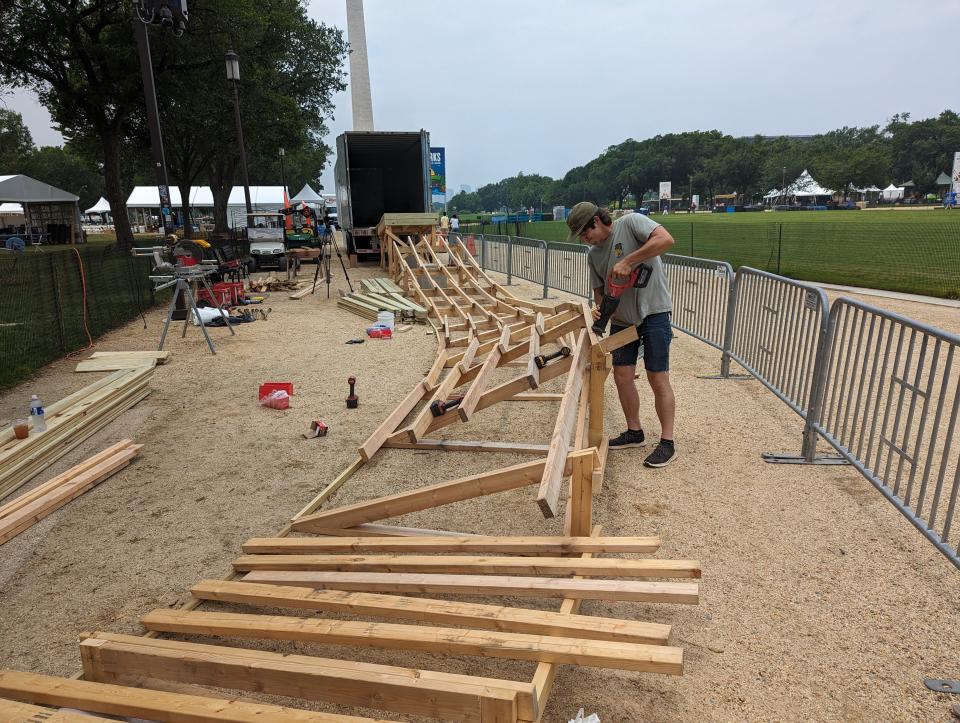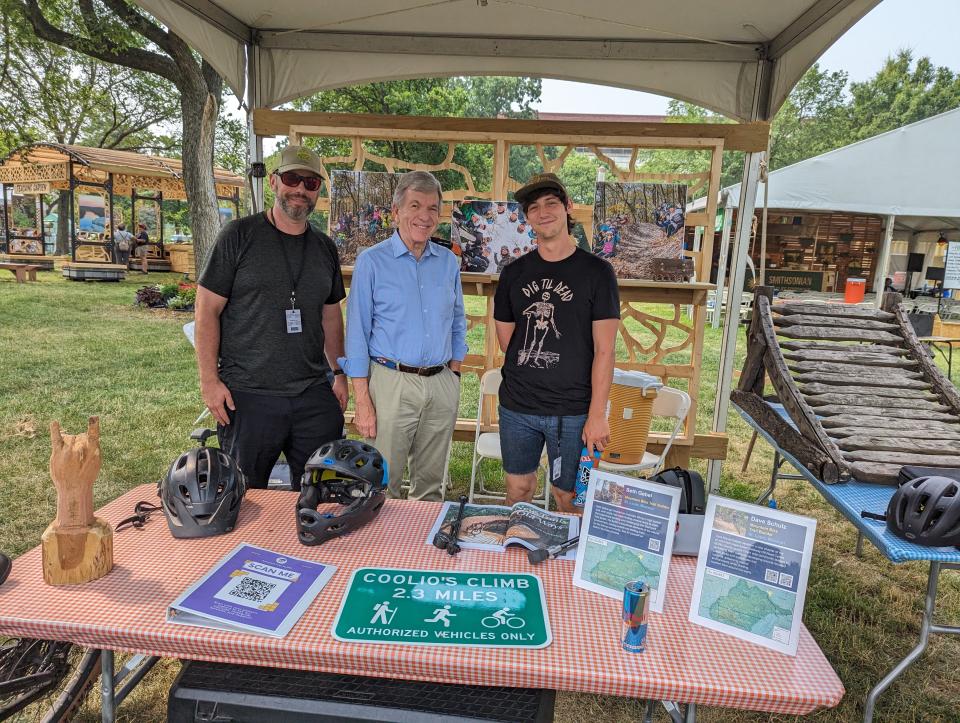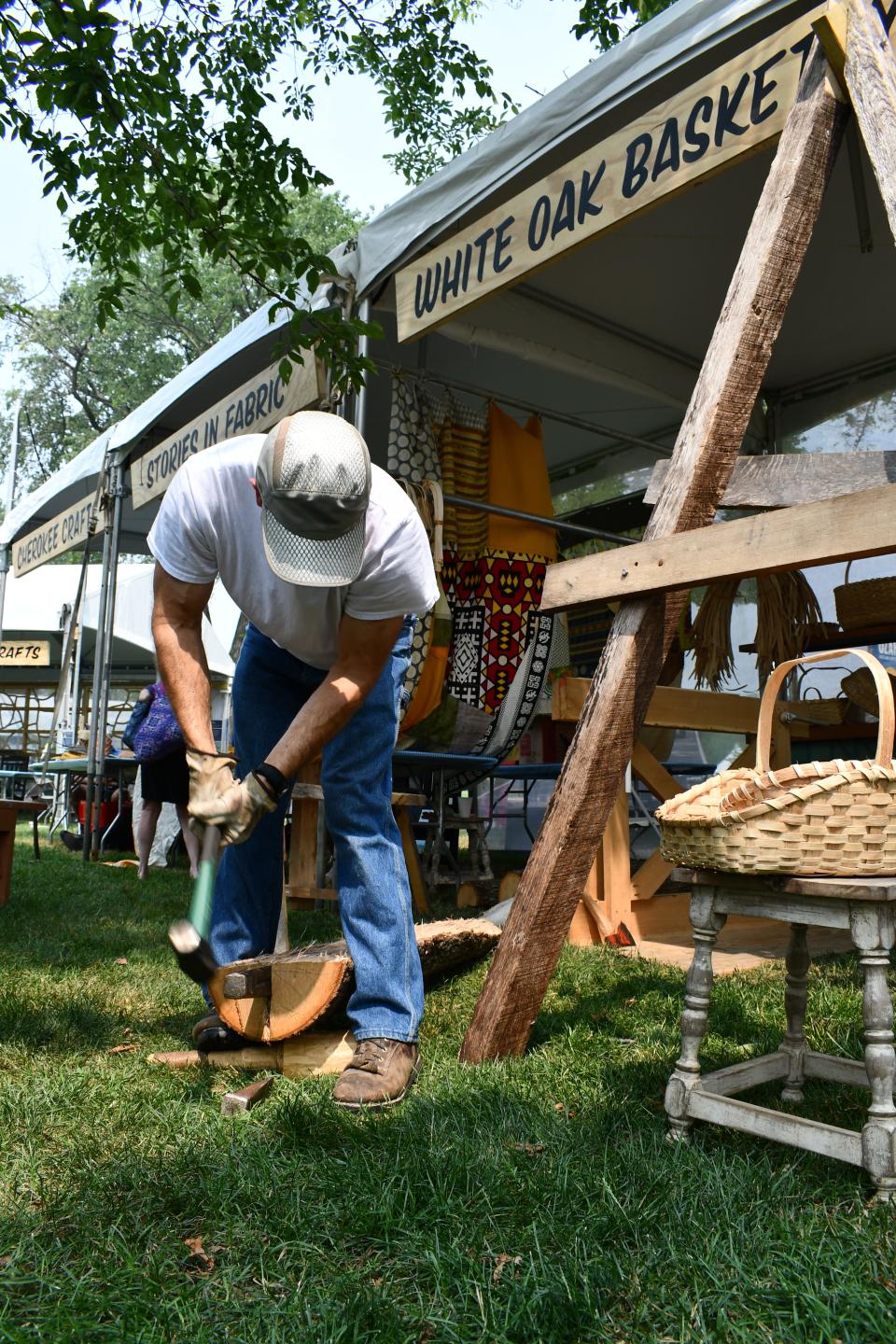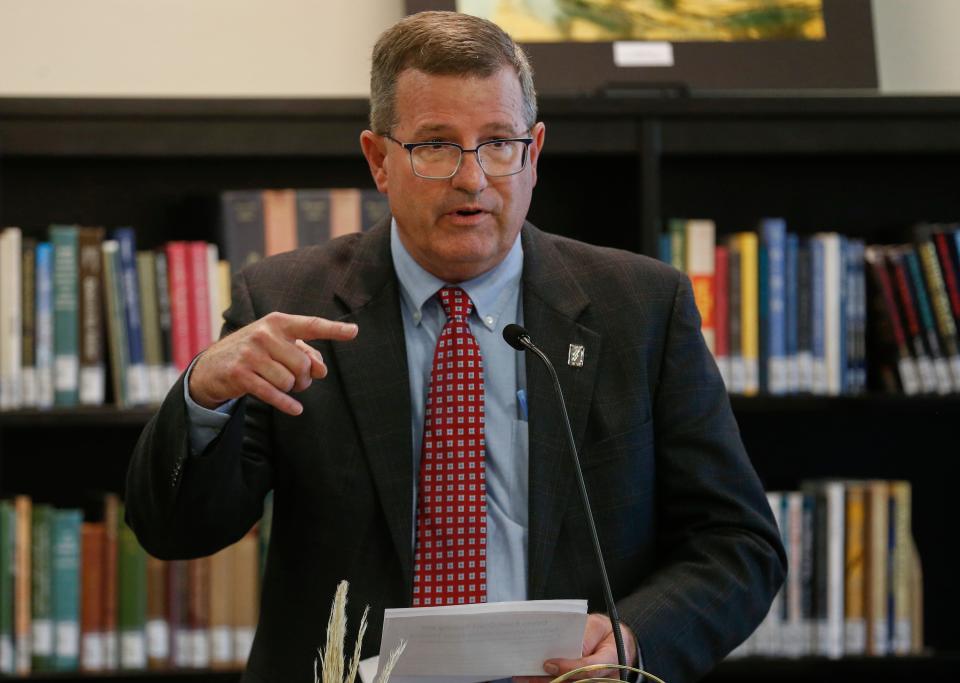Missouri quilters reflect on sharing their craft on the National Mall in Washington, D.C.
The Smithsonian Institution in Washington, D.C. is the nation's treasure house, where visitors to the capitol can see the original Star-Spangled Banner, Dorothy's ruby slippers from "The Wizard of Oz," Abraham Lincoln's stovepipe hat and Julia Child's kitchen.
For two weeks this summer, they could also see quilts made by Martha Alsup and JoEtta Gleason of Arcola.
The Missouri natives were chosen by the Smithsonian as representatives of the traditional culture of the Ozarks for this year's folklife festival, an annual two-week event held on the National Mall in Washington. The folk culture of the Ozarks — its music, crafts, history and people — was a focus of this year's festival.

For the duration, Alsup and Gleason spent their days in the shadow of the Washington Monument, alongside basket weavers, moonshiners, makers of fishing gigs and other Ozarks craftsmen. Alsup and Gleason and the other artisans demonstrated their skills for thousands of festival-goers.
Concerts of traditional Ozark music, of the kind commonly heard at Greenfield's Fox Hunters' Picnic in the 1960s, were also a daily feature of the festival, with Springfield groups like the Creek Rocks and the Ozark Mountain Daredevils also performing.
Alsup and Gleason belong to the Arcola Quilt Club, which has existed at least since the 1930s. Quilts made by its members were on display beneath the awning of "the Quilting Corner" on the festival grounds.
"We had to decide what to bring," Gleason said during an interview at the festival. "We've got lots of quilts. But we wanted to show lots of variety and give all the aspects of quilting."
Chance encounter leads to nation's capitol
In an email written from Arcola after she got home, Gleason described her experiences in Washington:
"I think maybe the highlight of the festival was seeing the quilts all hung up. We had worked hard deciding which ones to bring that would give the greatest amount of exposure to quilting, since we couldn't bring everything."Meeting with the visitors was fun for me — feeling the awe that some of them had in seeing the quilts. There were a lot of hard questions — like how long does it take to make a quilt. That is so relative to the pattern.
"Each day we would get there around 9:30 a.m. in the morning. We would uncover the quilt we were quilting, set up our examples and the interns would hang the quilts.
"At 11 a.m., the festival would open and lots of people would come by to see us. We would invite them to try hand quilting and many of them did. So many said, 'My mom or my grandma quilted.' They wanted to explain to their children about it and maybe let them try quilting. I was surprised at the number of twentysomethings that were interested in learning about quilting."One regular and agreeable part of the Arcolans' daily routine was the presence of a 20-year-old college student, Margo, who asked in an interview after the festival that her last name not be used. She was a godsend when the two Dade Countians came down with COVID-19 halfway through the festival.
Gleason continued:
"One of the festival volunteers came by on the first day and we showed her how to quilt. Margo came by every day to quilt with us. We got to where we would say, 'Margo, do you want to show them how to quilt?' She was very good at it. When Martha and I both became sick, they let her come and help every day. The interns were a lot of fun and so helpful. The people running the festival felt like good friends by the time we left. I will always remember them with fond thoughts.
"When I got sick, I felt the trip was ruined. The trip had been such a blessing and honor for me. We had planned for months, and many people were praying for me. Even though I didn't understand the outcome, I referred to [the Scripture] which says, 'All things work together for good for those that love the Lord.' I had to believe that God had a reason. It is an experience I will never forget, and I am grateful to Kaitlynn McConnell for giving us the opportunity."
Gleason was referring to the daughter of Greenfield native James Sydney McConnell. Reporting by Kaitlyn McConnell was the means by which organizers of the festival found the Arcola Quilt Club.
"Kaitlyn wanted to do a story on quilting for her 'Ozarks Alive' website," Gleason said. "She went to Rader's in Lockwood. Janice Theurer was running the store that day. Kaitlyn asked if she knew a quilter. Another customer in the store, Angie Myers, said she had seen some of our quilts in a display at the Opera House in Greenfield before the pandemic. Kaitlyn got my phone number from Angie and called me to ask if she could visit our club and do astory."That chance contact in Lockwood resulted in the selection of the two members of the Arcola Quilting Club for the Smithsonian Folklife Festival. They met people from all over the world while they were there. And some folks from home, including a former United States senator.
"Roy Blunt came by," Gleason said. "I told him we are from Arcola, which is a 'poke and plumb town.' If you poke your head out the window, you're plumb out of town."

A centennial quilt long in the making
On July Fourth, at a festival venue called "The Front Porch," Martha Alsup was a participant in a panel discussion on quilting and weaving traditions in the Ozarks. The panel also included Ozarkers originally from the Marshall Islands in the Pacific. A large community of Marshallese live and work in Springdale, Arkansas. The panel discussion was led by Deb Bailey of Columbia, who works for the Missouri Folk Arts program.Alsup began the discussion by describing how she became a quilter.
"I started sewing and quilting when I was eight, and I've been doing it ever since," she said.
Alsup is following a family tradition.
"My mother [Vesteleen Landtrip Robison] was still piecing quilts by hand till she died at 99," Alsup said.
A quilt she chose to take to Washington — one with a special connection to her mother — was prominently displayed at the festival's Quilting Corner and was featured as the number one photo on the festival blog's "Top Ten Photos" for July Fourth.
Alsup's "hobo quilt" began to take shape in the nation's bicentennial year.
"I gave the pattern and material to my mother when I was pregnant with my son in 1976," Alsup said. "The hobo has clothes in his bag to run away from home. Mom made the blocks where the hobo is. I sewed the white pieces to the printed material.
"It's totally my work, mine and my mother's. She'd be amazed that it's down here [on the National Mall]."

Raising a family of four children with her late husband Amos Alsup delayed the completion of the hobo quilt until 2021.
"It took me awhile, but I finally got it done," she said.
When she finished the quilt she gave it to her son Clint, of Fair Grove — the same son she was expecting when the making of the quilt began in 1976.
More: White oak from Ozarks travels 1,000 miles to National Mall for Smithsonian Folklife Festival
Sharing knowledge and passing on traditions
During the festival discussion, Deb Bailey of the Missouri Folk Arts program spoke of JoEtta Gleason's fidelity to traditional methods.
"JoEtta designs her own quilts and still hand-blocks them. She's a diehard blocker. It's kind of rare today."
At another panel discussion on the festival's "Front Porch" on July 7, Louise Sheridan from Ripley County was a participant. Sheridan was the third Ozarker chosen for the Quilting Corner. She said that while quilts have always been ornamental, their purpose was mainly utilitarian in the past.
"Quilts were made out of necessity, for warmth. My great-grandparents made quilts out of old wool coats. They were so heavy I couldn't pick them up."
In the days of uninsulated houses, "quilts were put over the windows and doors in the winter," Sheridan said.
Another participant in the festival, Pat Finley Johnson of Pocahontas, Arkansas, was invited to Washington because of her knowledge of "Ozark foodways." She is also a quilter and contributed to the panel discussion with some practical information.
"Never wash a quilt in a washing machine," she said. "Put your quilts on the lawn and let the sun wash them."
Sheridan said that a shared interest in quilting can lead to new friendships.
"Quilting brings people together. If you're new to a community, you ask where's a quilt guild and you immediately have 25 new friends."
Gleason said that Cindy Brodie, a new Arcola resident and transplant from California, recently joined the Arcola Quilting Club for just that reason.
"She wanted to meet some people. And she's really gotten into quilting."
More: Missouri mountain bikers craft, ride first mountain bike feature on National Mall
Gleason said that new members are always welcome. The Arcola club meets on the second and fourth Tuesdays of the month at 9 a.m. Meetings are held at the community building in Arcola.
The Arcola quilters already have one new disciple: Margo, the college student and festival volunteer who helped at the Quilting Corner.
Asked if she would take up quilting herself, Margo answered without hesitation.
"Absolutely. Not at Martha and JoEtta's level — but I've already been to fabric stores. JoEtta had a pouch where she keeps her thimble and thread and needles. I turned it inside out to see how the seams were done. I'm going to make a little bag like hers.
"I had no experience of quilting. The first morning of the Festival JoEtta and Martha taught me the stitch.
"They answered all my questions. They were very patient with me, and always had time for me. I really appreciate that."

Tom Peters is the dean of the library at Missouri State University and was a lead curator for this year's events in Washington. In response to an enquiry just before the festival began, he wrote, "We have a team of quilters here from Arcola. Dade County is well-represented at the Smithsonian Folklife Festival."
And to that, all of Dade County's people can proudly say — AMEN.
Kirk Kramer writes from Cottage City, Maryland, by way of Greenfield, Missouri and Miami, Oklahoma. He is the great-grandson of another Arcola quilter, Elizabeth Killingsworth Hargis, and keeps warm on winter nights beneath a quilt she made.
This article originally appeared on Springfield News-Leader: How Dade County quilters won converts in the nation's capitol

